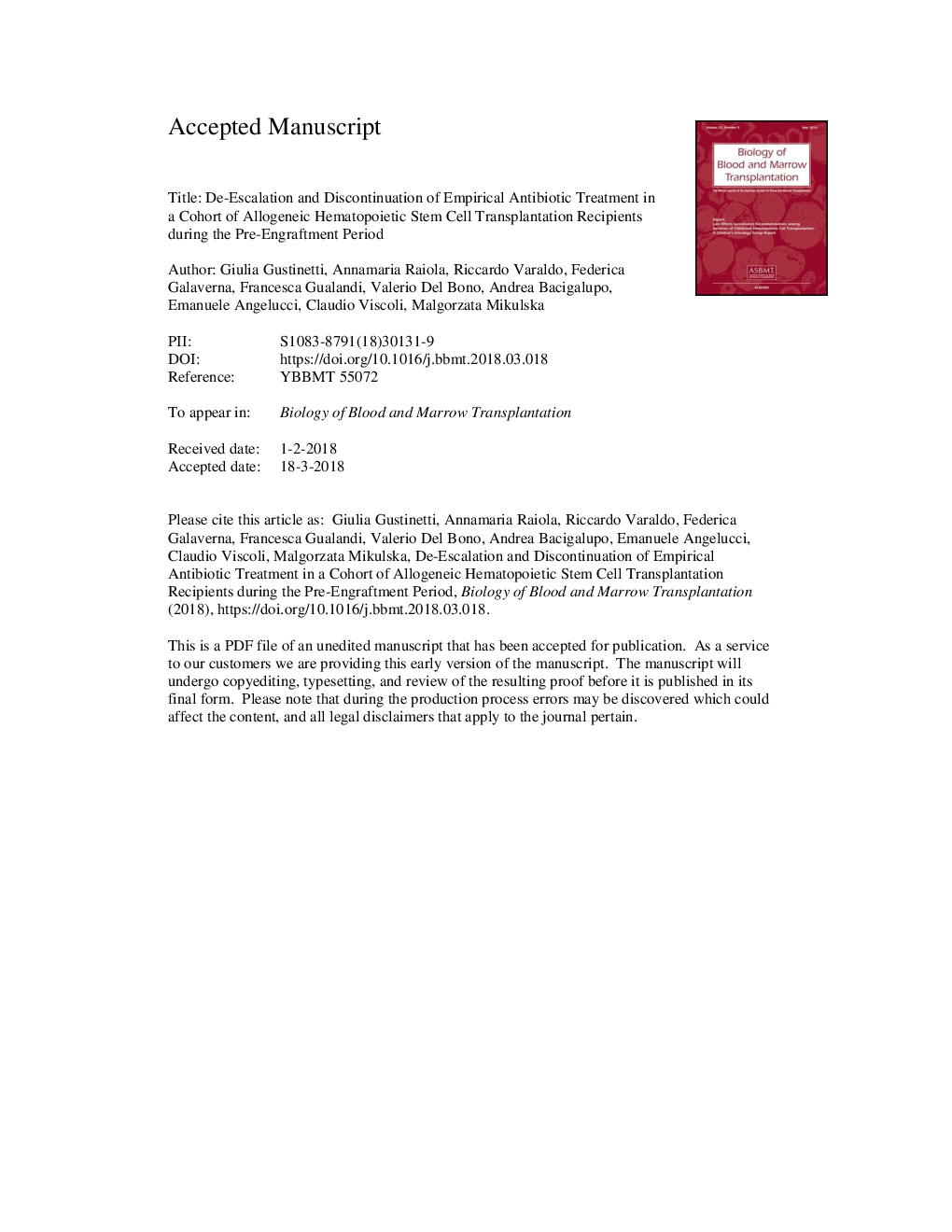| Article ID | Journal | Published Year | Pages | File Type |
|---|---|---|---|---|
| 8949667 | Biology of Blood and Marrow Transplantation | 2018 | 22 Pages |
Abstract
To investigate rates and outcomes of antibiotic de-escalation during pre-engraftment neutropenia in allogeneic hematopoietic stem cell transplantation (HSCT) recipients. 110 consecutive HSCTs performed between January 2013 and March 2014 were analyzed. De-escalation was defined as narrowing the spectrum of antibiotic treatment either within (early) or after 96 hours (late) from starting antibiotics. Discontinuation, considered a form of de-escalation, was defined as stopping antibiotics before engraftment. De-escalation failure was defined as restarting/escalating antibiotics within 96 hours after de-escalation. Predictors of de-escalation were analyzed. Among 102 patients who started antibiotics and were included, 68 (67%) received monotherapy (mainly piperacillin-tazobactam, nâ=â58), whereas 34 (33%) received combination therapy (mainly meropenem plus glycopeptide, nâ=â24). Median duration of neutropenia was 17 days. Bloodstream infections (BSIs) were diagnosed in 28 patients (20%). Early de-escalation rate was 25.5% (nâ=â26) and mostly consisted of reducing the spectrum of β-lactams (nâ=â11, 42%). In comparison with theoretical scenario of continuing therapy until engraftment, the median savings in terms of antibiotic days were 10 for meropenem, 8 for piperacillin-tazobactam, and 7 for vancomycin. Failure rate of early de-escalation was 15% (4/26). Late de-escalation rate was 30.4% (nâ=â31) and failure rate 19% (6/31). The rate of de-escalation any time before engraftment was 55.9% (nâ=â57), including discontinuation in 33 patients (32%). Death at day 60 after HSCT occurred in 3 patients who never underwent de-escalation. Acute myeloid disease and BSIs were independent predictors of early de-escalation. De-escalation, including discontinuation, is feasible and safe in pre-engraftment neutropenia after allogeneic HSCT.
Keywords
Related Topics
Life Sciences
Biochemistry, Genetics and Molecular Biology
Cancer Research
Authors
Giulia Gustinetti, Anna Maria Raiola, Riccardo Varaldo, Federica Galaverna, Francesca Gualandi, Valerio Del Bono, Andrea Bacigalupo, Emanuele Angelucci, Claudio Viscoli, Malgorzata Mikulska,
